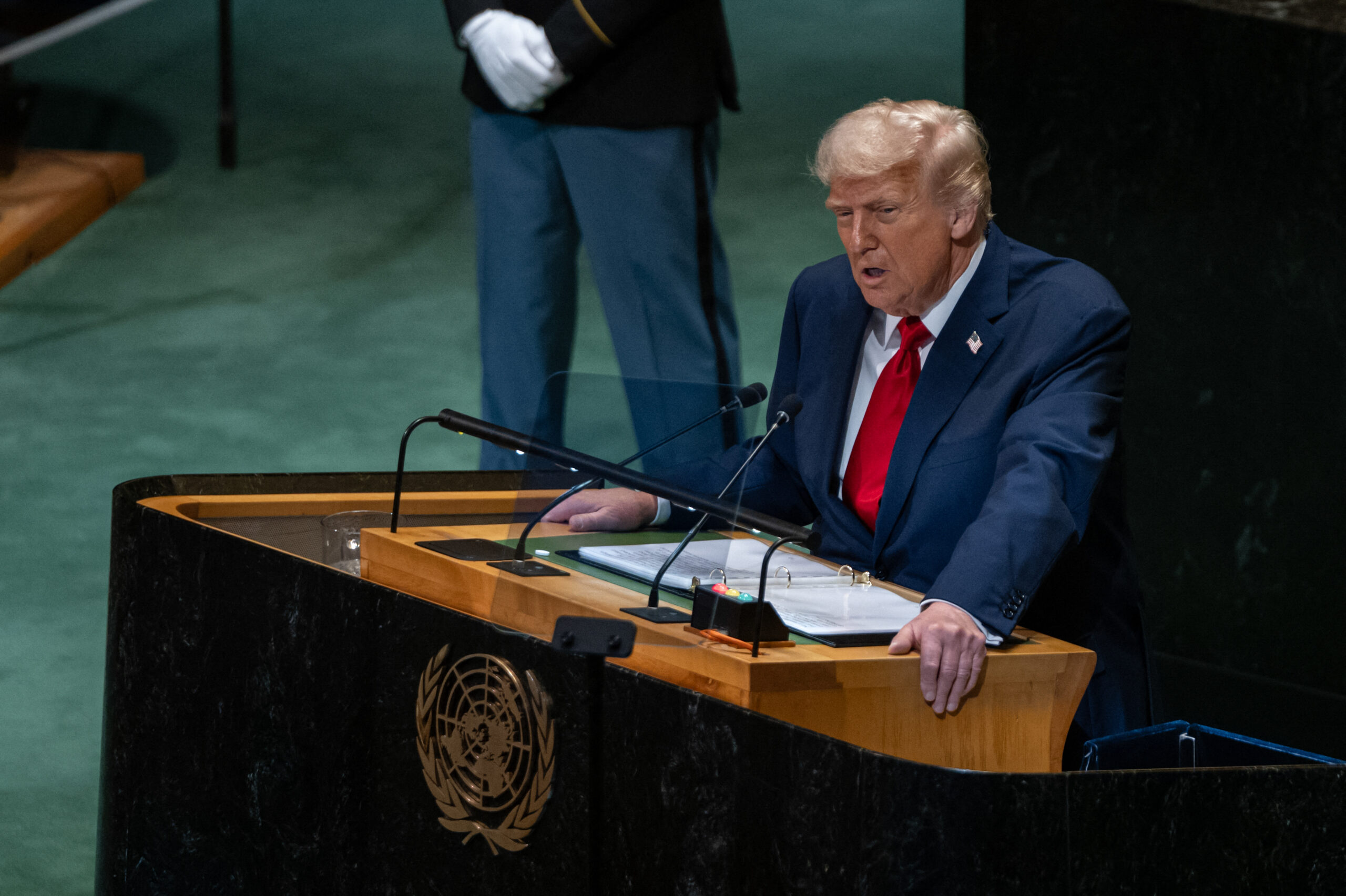- September 30, 2025
Trump vs. Jimmy Kimmel: Is free speech on the ropes?

The Miami-based IAPA recently issued three highly unusual statements, expressing concern about the Trump administration’s attacks on independent media. The latest, on Sept. 19, cited suggestions from President Trump and Federal Communications Commission head Brendan Carr that they could revoke the ABC network’s broadcasting license.
The reason? Critical remarks by late-night political comedian Jimmy Kimmel. Trump had stated on Sept. 18 that some networks “give me only bad publicity or press.” He added, “They’re getting a license. I think their license would be taken away.”
Kimmel was suspended from ABC hours after Carr had warned that the FCC could take action against the network because of the comedian’s comments about Trump’s MAGA base reaction to the killing of Charlie Kirk.
After a barrage of public criticism of the network — including a letter signed by Tom Hanks, Meryl Streep, Jennifer Aniston and about 400 other artists — Kimmel was reinstated a few days later.
But the incident triggered alarm bells across the country because it came only weeks after CBS announced it would end its run of Stephen Colbert’s late-night show next year. While CBS officially called it a “financial decision,” many fear it was made under government pressure.
Both ABC and CBS are believed to have acted under government pressure because their parent companies are seeking mergers that need the Trump administration’s approval.
As IAPA president José Roberto Dutriz said in a statement, the president’s mere suggestion that a network could lose its license “constitutes an unacceptable form of censorship.” He warned these threats can lead to “self-censorship” and a weakening of democracy.
This came just a week after the IAPA had condemned Trump’s lawsuits against The New York Times for $15 billion and a similar $10 billion claim against The Wall Street Journal — the latest in a series of lawsuits by Trump against independent media companies.
The Trump administration has also announced plans to cut off access to the Pentagon for journalists who publish unclassified information without government approval. On top of that, the White House has changed the rules of who gets invited to its press briefings and Trump’s press conferences.
Under the new rules, in addition to journalists, many pro-Trump influencers will be allowed in.
The White House argues — accurately — that influencers in today’s digital world often have larger audiences than established media. But one can only wonder whether this new practice won’t lead to increasingly complacent questions for the president.
Martha Ramos, a Mexican journalist who heads the IAPA’s Freedom of the Press and Information commission, told me she is surprised to find herself criticizing the U.S. government. “These kinds of things were very unusual in the United States,” she told me.
What’s also dangerous is that Trump’s offensive against free speech may be copied by other world leaders. “The United States is a world power, and what happens in the U.S. ends up having an impact in other countries,” Ramos said.
To be clear, neither the IAPA nor other freedom of the press groups are comparing the United States to dictatorships like Cuba or Venezuela. I can still write these lines, and thousands of other U.S. journalists can still criticize the president without fear of arrest.
But growing numbers of U.S. legal experts are using the word “censorship” to describe what’s happening here. Many note that Kimmel’s contract expires in May, and worry that he, like Colbert, could be pushed off the air before the mid-term elections under the guise of “declining ratings.”
Samantha Barbas, a University of Iowa law professor who has written several books on freedom of expression, told me that we’re seeing “increasing censorship” in America. While past presidents have criticized and occasionally threatened the media, “never before have we seen the kinds of concerted actions against the press that we’ve seen in the past few months,” she told me.
Barbas is especially worried about what she calls “indirect censorship” — the administration’s capacity to intimidate networks by threatening to revoke licenses or not authorize mergers. That, in addition to media acquisitions by Trump-allied billionaires and his lawsuits, could leave the country with a docile press, much like in many authoritarian nations.
We’re not there yet, but one thing is clear: Trump has eroded America’s moral authority to criticize other countries for muzzling the press. That, in itself, is a tragedy.

